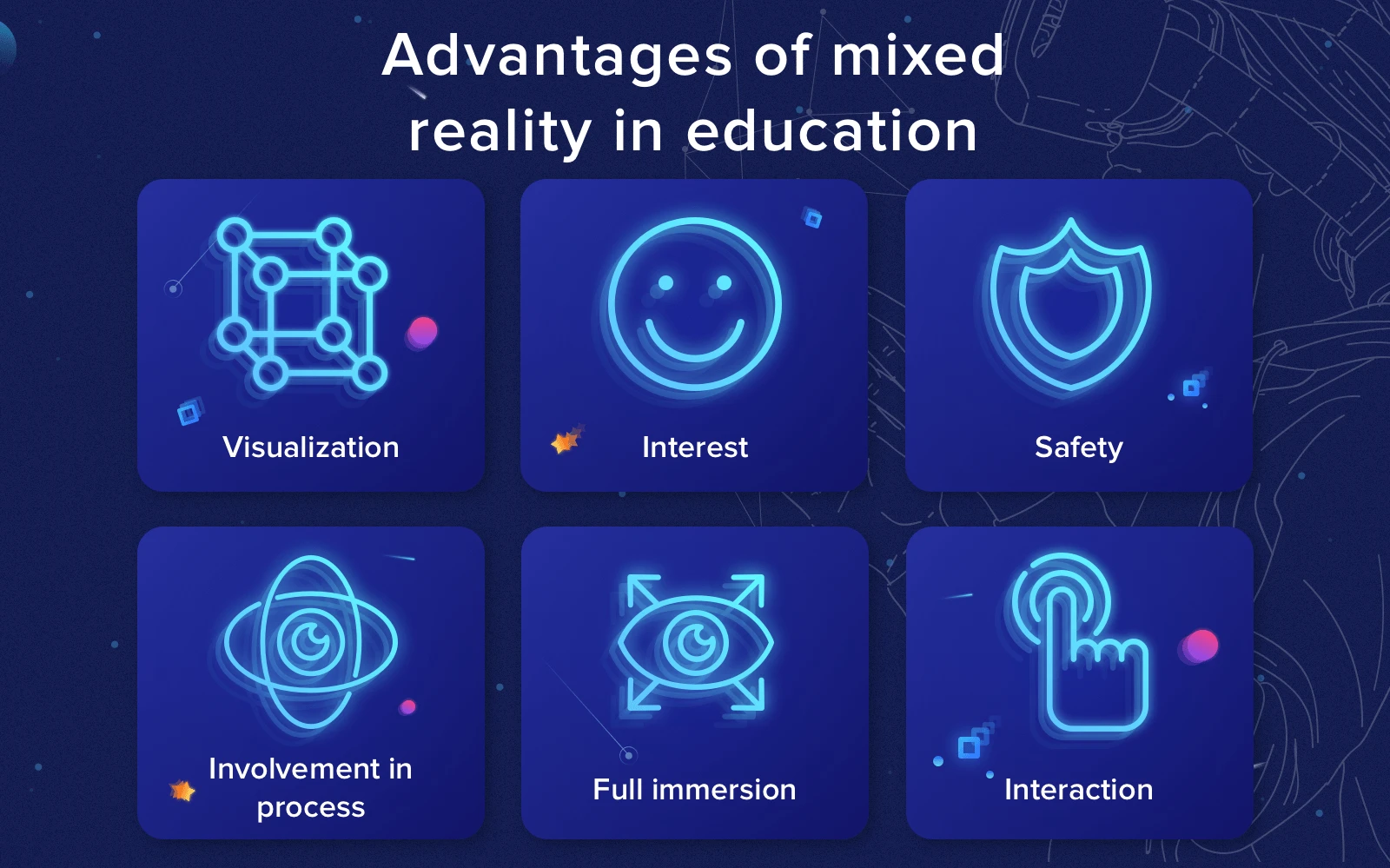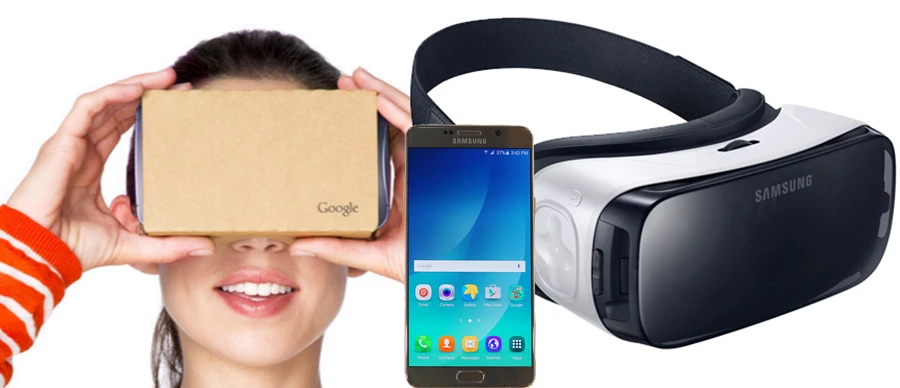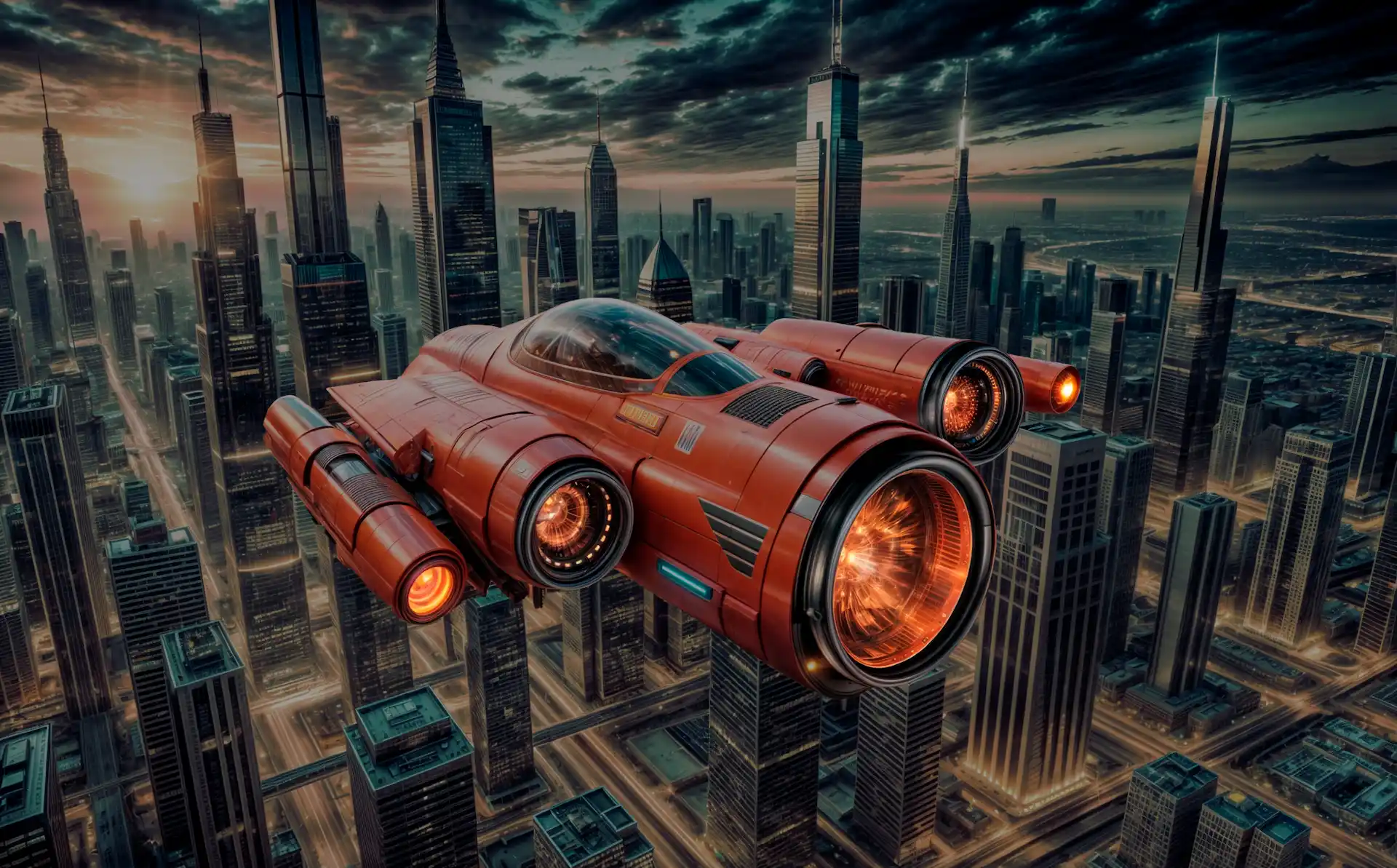Benefits of VR

VR technology develops fastly. There is no doubt that it has many advantages the users can find while using it.
Scientists have proved that time flows faster in virtual reality And even found a semblance of an explanation for this
The results of a recent study appeared on the web. They showed that players who spend time in virtual reality face significantly faster passage of this very time.
The academic report on the topic was presented by experts from the University of California at Santa Cruz. During their investigation, it was discovered that game participants who were supposed to give a signal after 5 minutes, gave it 1 minute and 12 seconds later, according to Futurism.
According to the investigators, this result is the following: in VR a person does not control his physical body. So, if you look down in VR (to what place your body is located), then you can not see anything or see the appearance of a body. This leads to a fragmentary perception of oneself as a physical body.
Virtual reality is not a "so-so game", but a useful thing that is already used everywhere You don't know about it just because no one advertises the real VR application.
VR is not just about toys. It is used in medicine, architecture, entertainment, education, and even in social projects – you can't even imagine how often virtual reality is used outside of the gaming industry! We will show you some illustrative examples of what benefits VR can bring right now. Why is VR "on the rise" today?
When virtual reality travel devices first appeared, everyone decided that this was a sign of a new era of computer games. Initially, VR was only stationary, but gradually it got rid of being tied to a single place and became autonomous, and the autonomy is only growing from year to year. Now you can use virtual reality without cobwebs of wires, clever ports, and multi-channel connectors, while the image quality has not become worse. And these are just hardware reasons to use VR often. And its real applications are even more interesting. A way to turn learning from a "punishment" into an interesting mixture of a computer game and an attraction for students
VR is a great way to present knowledge and make it much more memorable than in the case of textbooks or even ordinary "flat" films. In the school curriculum, based on virtual reality, you can draw historical events with computer graphics, or visually show students the actions of physical laws. And even banal safety rules will be easier to learn if students "live" them in the helmet/virtual reality glasses. At the same time, there is a very serious "hardware" in modern virtual reality glasses for the implementation of such tasks. For example, in VIVE Focus, applications run on a Qualcomm Snapdragon 835 chip, which even today is almost equal to sub-flagship models in terms of processor part (Snapdragon 730, Helio P90), but, more importantly, in terms of graphics component (Adreno 540) is on par with such a modern flagship chip as Kirin 980, for example (known for Huawei Mate 20, P30, Honor 20 and View 20 smartphones). At the same time, it allows you to run VR applications in 3K resolution-this is more than modern game consoles can offer. And all this - with clear control, complete freedom from wires, sensors, and connection to a computer. To learn using virtual reality, you no longer need to re-equip the classroom specially, so such VR systems will soon become a ubiquitous tool in the classroom.
And with VR, students can independently conduct various experiments and experiments. As you know, everything is difficult with experiments in real life, because it is expensive to contain reagents in large quantities, and some of the solutions are simply dangerous. In VR, you can conduct experiments in programmed game logic and safely, while students will not automatically repeat the actions of the teacher, but will be able to be participants in the process themselves — it's much more interesting to learn this way! Professional experience and training
With the help of VR, everyone can experience situations that are difficult or impossible to recreate in real life. For example, actions in emergencies at factories and enterprises, or to clearly show what happens in cases when safety precautions are not observed.
It's not obvious at first glance, but VR helps train professional skills even for social workers. The fact is that in classes on the survey of living conditions of disadvantaged families, the law prohibits showing students real photos of apartments. This means that in the conditions of a university, it is impossible to adequately prepare students for what they will have to deal with. The reality is that such apartments are filled with insects and unsanitary conditions, drunk customers, and unpleasant details of their lives. Yes, it can be explained in words, but it is better to see once than to hear a hundred times. Especially when you see everything in volume and detail. And after that, decide whether to change the type of activity (which often happens with students who are studying for social workers). And this is not an unfounded theory, such a VR application is already gradually being implemented. It began to be developed in April 2019 at the Hackathon developer Forum, where students from different regions participated. Ordinary schoolchildren took the text from a textbook for future specialists in the social sphere and turned the description of work in the apartment into a script. In the application, students will see not only examples of working conditions – with the drawing of the house, the required number of rooms, actors, and the interior – but also work out behavioral patterns. The team is now supervised by specialists from HTC, shortly the application will be released in the final version, and it will be added to the training program for social workers.
And soon, RSSU and HTC are planning to work together on a simulator application for working with potential foster families. In it, you will need to decide whether it is possible to give the child to the family, or everything is not as good as it seems at first glance. Of course, the training simulator-"detective" will not be as colorful as the computer games Detroit: Become Human or Murdered: Soul Suspect, but the mechanics of collecting facts and making decisions will differ slightly.
An objective test of knowledge How to conduct Olympiads for social workers, if you want to do without paperwork and understand in visual situations which of the students is competent, and who lacks knowledge? It is impossible to bring real problem families, hired actors can start working not according to the script, be biased or even suing, and it is forbidden to invite minors to the roles (social workers also have to deal with them regularly).
That is, it is difficult to simulate the situation from the life of social services specialists. But the application, in which the same situations with details and solutions are modeled in front of the Olympic athletes at the same speed in the same space, is impartial — all participants will be in equal conditions.
Professional development and experience for everyone
Virtual reality allows you to make mistakes, the price of which in the real world is environmental disasters and people's lives. This means that training in such areas as medicine, industry, and others with increased risks will be even clearer. For example, virtual reality is now used to train engineers at enterprises. With its help, young specialists are shown working on dangerous and technically complex objects, in working with which there is a risk to life or the risk of damage to expensive equipment. Virtual reality allows you to demonstrate what would be problematic to demonstrate in any other form, especially in the design of objects. For example, you can demonstrate individual machines, aggregates, and even components. Moreover, in VR, engineers can simultaneously make edits to the project.
Leisure and relaxation after work
VR has been used for a long time as a way to overcome their fears. The most popular scenario is working to overcome the fear of heights. If you distract from the attractions in their pure form, virtual reality helps to entertain and educate the elderly and people with disabilities. For example, the NTS and the RSSU are creating a joint project "Moscow Longevity". A demonstration zone will be deployed in the social service center, where elderly and disabled people will be able to come. In virtual reality helmets, they will be able to travel to their favorite city or place that they have always wanted to visit. And guests will also be able to travel with a virtual guide. People who are free to fly and travel may not understand this, but the elderly and disabled people appreciate the opportunity to touch new sensations at least with the help of VR. For employees of social services who work in stressful situations, there is also an opportunity to create a useful application. In VR, you can launch working ways to relax and recover. The plans are to create special rooms that will "transfer" the employee to a relaxing environment. For example, to the beach, to your favorite city, or just to a quiet place where you can relax.
Travel to space and the bowels of the volcano
With VR, you can go anywhere. The helmet and the application are transferred to the depths of the sea or the bowels of a volcano, allowing you to study the human body from the inside and visit space. All this is available today. The Moscow Center for Education Quality has already launched a project of a mobile VR laboratory-a class of twelve HTC Vive Focus. Once a week, he comes to one of the Moscow schools for training and testing in astronomy. Virtual reality does not need to prove its usefulness — it is already useful now

As you can see, VR has already become something more than just entertainment or technology for new computer games. VR allows you to get acquainted with complex processes, and algorithms to simulate various situations and accumulate experience through trial and error.
The faster the autonomy and computing power of virtual reality devices grow, the more useful opportunities will appear for using VR in life, work and training. The beginning has already been laid now, and in the coming years, many areas will be expanded and improved.
Why virtual reality is not a ballast in mobile phones and consoles, but something much cooler
Virtual reality, or simply VR — is a thing familiar to everyone by hearsay and very few people are familiar with details, which at the first acquaintance looks like just pampering without a specific application. The more surprising is that a real effective VR is not when you put your mobile phone in a case and stick your nose to the screen, but a really useful thing that is not limited to helmets and will soon help save people's lives. To understand what virtual reality is, you do not need to study encyclopedias or watch boring conferences with people in ties. We will tell you everything you need to know about it in a minute and a half in the video.

Analysts are confident that the success of VR is associated with high-quality content Analysts from Juniper Research said that to win the user and become truly mass, VR devices, helmets, and virtual reality glasses need to provide high-quality, interesting, and deep content. Now there are big problems with this, experts say. Basically, applications simply demonstrate the capabilities and do not give anything else, they do not delay the consumer's interest for a long time. By 2021, analysts believe that about 60 million VR gadgets for smartphones will be sold. That is, the growth will be 240% compared to this year (forecasts for 2016 are 16.8 million VR). However, VR devices for mobile phones bring only 7% of revenue from total sales of VR systems. The reason is too low cost; the main profit is accounted for by Oculus Rift, PlayStation VR, and HTC Vine.

